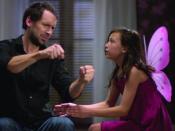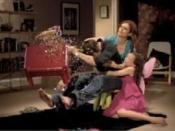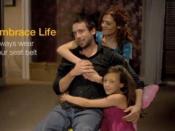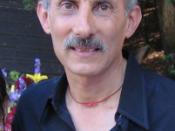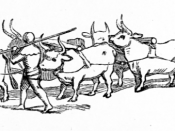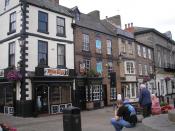In our psychology class we were asked to read the short story "Finding Light in the Dark". The story is about a young man named Jack Kornfield who loses his sight early on in life. Although at first he struggles with his handicap, he begins to discover the benefits of not having sight. Overtime Jack learns that in many ways his loss of sight was more of a blessing then a curse. Jack's situation is a demonstration of the psychological process of loss and revival and the process that people go through to recovery.
After Jack lost his vision he felt overcome with grief and anguish. At one point Jack recalls moments when he felt as if there was a void within which seemed to fill him with despair and feelings of hopelessness. These feelings were a result from his own belief that without his sight, he could never be the person he once was.
These feelings and beliefs are not uncommon among those who have suffered a traumatic, life-altering tragedy. Like Jack, many people who lose their sight experience feelings of being incomplete or flawed. In Jack's case, when he lost his sight he felt as if there was some type of void within him. Often times this belief will negatively affect the development of the individual's self-conception.
Like most people who just lose their vision, Jack focused primarily on what he had lost rather then what he still had. It was because of this, he became not only blinded physically, but emotionally as well. He became so focused on the negative aspects of his disability that he could no longer see the senses that he still had.
However, it was at this point when some instinct caused Jack to change his course. He began to look more closely, not at things but at a world closer to himself from an inner place to one further within. He began focusing not on what he had lost, but on what he still had. Slowly Jack began to take his first steps on the road to recovery.
By focusing on what he had rather then what he had lost, Jack was able to find light within him. It was this light that gave jack the confidence to overcome his disability, and the gratitude to appreciate the senses that he still had. Jack explains that overtime he began to feel light. And it was this light that helped him to embrace life.
But with joy came light, so did darkness with anger. Jack found that when he became anxious or upset, the light would fade. He realized that he could not afford to be jealous or unfriendly, because, as soon as he was, a bandage would come down over his eyes, causing him to be blind, both emotionally and physically.
Before long Jack began to stop trying to "see" and began learning to trust his instincts. An example is when Jack had to learn how to use his hands without the use of his eyes. At first it seemed to Jack that his hands refused to obey him. When they looked for a glass on the table, they missed it. They fumbled around the door knobs, mixed up black and white keys at the piano, and for a short time Jack remembers fearing he might have lost his ability to control his own hands. However, before long he realized that instead of becoming useless, they were learning to act on instinct and freely.
Over a period of time he discovered that the only way to move around the house, the garden or the beach was by not thinking about it all, but by letting your natural instincts and senses guide you. As a result of this discovery, Jack found that he could move between obstacles the way they say bats do. Jack explains "what the loss of my eyes had not accomplished was brought about by fear. It made me blind".
Although Jack was blinded by the operation, he was still able to see the positive aspects in his life. In the end, Jack learned to overcome the challenges of being blind, and became a better person in the end.
Much like Jack, I too lost something that was very dear to me just this past year. It happened suddenly and without warning, and the effects were devastating. Earlier last spring I lost my dog Molly. Molly had been one of the most important aspects of my life, and when she died I felt as if there was a void inside of me.
At first I didn't want to believe that she was gone. I would wake up each morning and expect to see her sitting by my bed or perhaps waiting by the door to go outside. But of course, each morning I was reminded by her absence that she wasn't with me anymore. As a result I fell into a state of depression for a period of time. It was a very difficult time in my life, and at that time I didn't believe that I could never have another dog in my life.
Overtime and with the support of my family and loved ones, I was slowly able to find the strength to keep on going. Somehow I was able to find the courage to accept that she was no longer with me in the physical sense, and to keep going with my life. I admit that at first it was a struggle just making it from day to day. But over time the pain became less sharp. I wish I could say that the pain dissolved, but time only dulled it.
It's been almost a year since I lost Molly, and not a day goes by when I don't think about her. When you lose someone as important as a best friend, you can never truly fully recover from the loss. But much like Jack, I learned to find the strength within me to keep going and to embrace life. Even in death, Molly will always be my source of light in my darkest moments.
